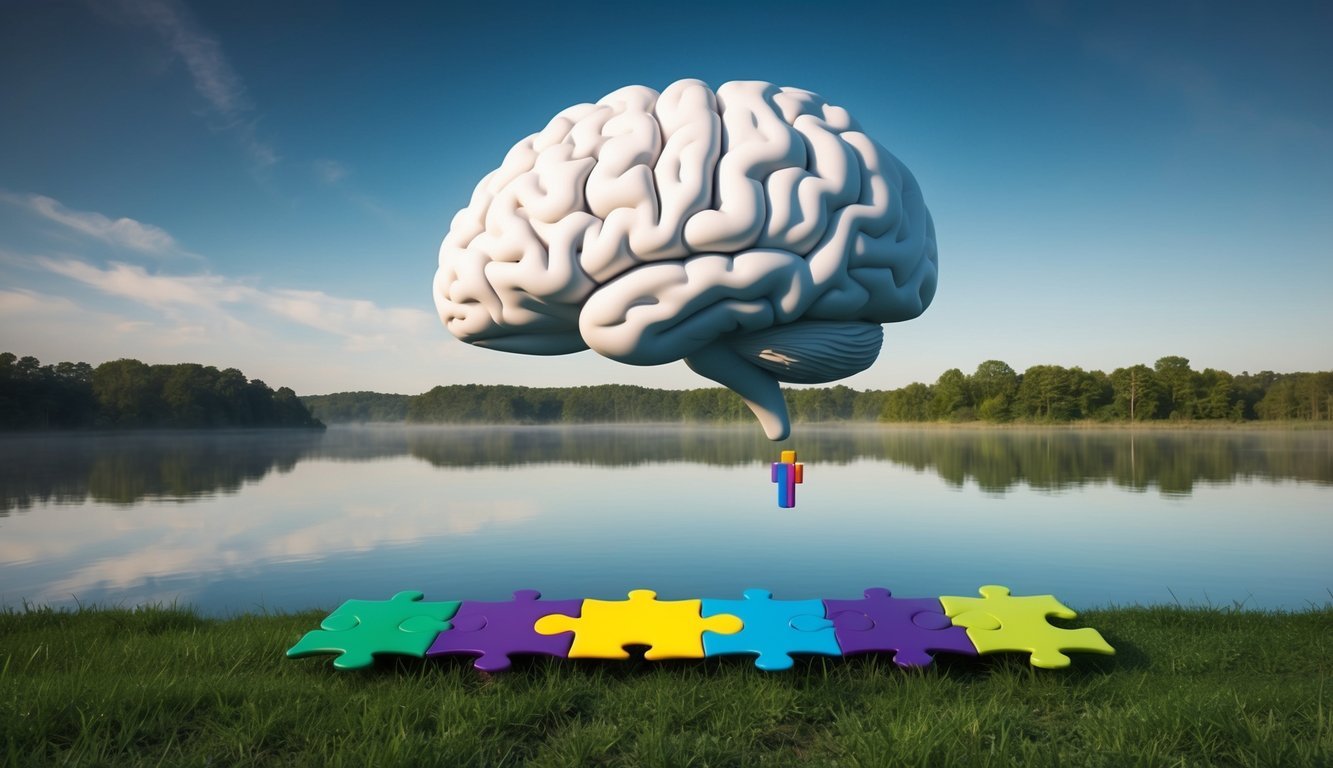
In the United States, more than 2.3 million adults aged 65 and older, which is over 4%, are diagnosed with dementia. Many people also experience some level of cognitive decline as they age, even if they do not have a formal diagnosis.
Understanding Cognitive Decline
This situation often prompts people to look for ways to boost their cognitive function, whether due to worries about potential decline or a recognition of lapses in cognitive abilities during challenging periods.
Research shows that changes made throughout adulthood can help slow or reduce cognitive decline and may even decrease the risk of developing dementia. Lifestyle adjustments such as quitting smoking and appropriately managing blood pressure are examples of these beneficial changes.
Among these adjustments, brain-training games have gained popularity, with claims suggesting they can improve cognitive efficiency and capacity at any age. Developers of these applications assert that their products can prevent cognitive decline and even increase IQ levels.
However, the scientific evidence supporting these claims is mixed.
As cognitive neuroscientists focused on understanding brain health throughout life, we delve into how brain function impacts cognition and how brain imaging techniques can illustrate the effects of cognitive interventions. Our aim is to explore the natural progression of brain function and determine optimal intervention methods.
Evaluating Brain-Training Games
Current studies highlight the neural processes involved in learning and outline various strategies people can use to maintain their cognitive health. While brain-training games may play a role in this process, there are more effective strategies for meaningful brain training.
Brain training typically consists of tasks, often computer-based, designed to enhance specific cognitive skills through a gamified format. These games usually aim to help users develop one or several specific abilities. For instance, a player might be required to quickly assess whether a displayed letter is even or odd or if it is a consonant or a vowel. The complexity of these tasks generally increases by adding time constraints.
These games demand significant attention, rapid information processing, and cognitive flexibility, which are key components of executive function.
Despite these requirements, the skills gained through these games rarely translate to broader, real-world applications. Ongoing debates question whether these brain games provide lasting cognitive enhancements across diverse cognitive domains. Establishing such claims necessitates robust evidence showing that playing specific games leads to improved brain function or cognitive performance.
In a notable case from 2016, the Federal Trade Commission penalized Lumosity, a major brain-training platform, with a $50 million fine for falsely claiming benefits that could enhance mental performance and reduce cognitive decline.
If improvements in gameplay only translate to better performance in similar games, game developers may need to reconsider their approach.
The Synapse Project offers a valuable case study. One group of participants engaged in unfamiliar activities like digital photography or quilting. Although these were not traditional games, they were structured to be engaging and challenging in a collaborative environment.
Another group participated in less demanding tasks such as themed activities like travel or cooking, or solitary pursuits like crossword puzzles, listening to music, or watching classic films. Each group met for 15 hours weekly over 14 weeks, followed by cognitive testing at both the start and end of the study.
Those involved in more challenging activities showed significant improvements in memory, processing speed, and reasoning skills compared to their peers engaged in less taxing tasks. Notably, cognitive training was not explicitly provided, suggesting that engaging in challenging activities fostered transferable skills, such as recalling word lists or addressing abstract problems.
Neuroimaging findings indicated that participants who tackled more demanding activities demonstrated improved neural efficiency, meaning their brains became better at problem-solving and information retrieval without unnecessary exertion.
Moreover, higher levels of engagement in challenging tasks correlated with greater cognitive gains and enhanced memory by the end of the study period.
Embracing Challenges
A crucial distinction observed in the Synapse Project was the nature of engagement—whether people participated alone or in a group. While social interaction has been linked to benefits in other research, this study highlighted challenge as the key factor for sustaining cognitive health.
Considering attempting activities such as digital photography or quilting can be enticing. However, remember that the specific tasks are less critical than the underlying principle of pushing oneself, which often arises from new experiences.
Learning something new, often accompanied by effort and, at times, frustration, activates the frontal and parietal lobes—areas responsible for judgment, thought processing, and attention management. These regions interact consistently to support cognitive adaptability and prevent the brain from becoming entrenched in automatic, habitual processes.
In summary, brain-training games branded as cognitive enhancers may not be the most effective means to improve cognitive abilities. Interestingly, people may already be participating in cognitive training through demanding games not labeled as “brain training.” Research indicates that games like Tetris or strategy games such as Rise of Nations can enhance cognitive skills. Additionally, playing Super Mario 64 has been linked to increases in brain volume in areas such as the hippocampus, which is essential for memory.
While limited evidence exists to support the idea that any brain-training game universally enhances cognition, some may be beneficial for specific areas of cognitive function. The crucial element lies in embracing challenges.
Seek activities that will push you outside your comfort zone; if you favor word-based games, consider trying something number-oriented, or vice versa. Engaging in tasks that feel slightly daunting is the best strategy for preserving and even improving cognitive function. When a challenge becomes familiar and manageable, it may be time to switch tasks or raise the difficulty to continue stimulating cognitive abilities.
“`htmlStudy Details:
- Title: BRAIN-TRAINING GAMES: WHAT THE EVIDENCE REALLY SAYS ABOUT THEIR BENEFITS
- Authors: Ian McDonough, Michael Dulas
- Publication Date: January 11, 2025
- Link: Link to article
- DOI: 10.1016/S0140-6736(24)01296-0
- DOI: 10.1016/s0140-6736(20)30367-6
- DOI: 10.1073/pnas.0801268105
- DOI: 10.1177/1529100616661983
- DOI: 10.1007/s41465-017-0040-5
- DOI: 10.3233/RNN-150533

